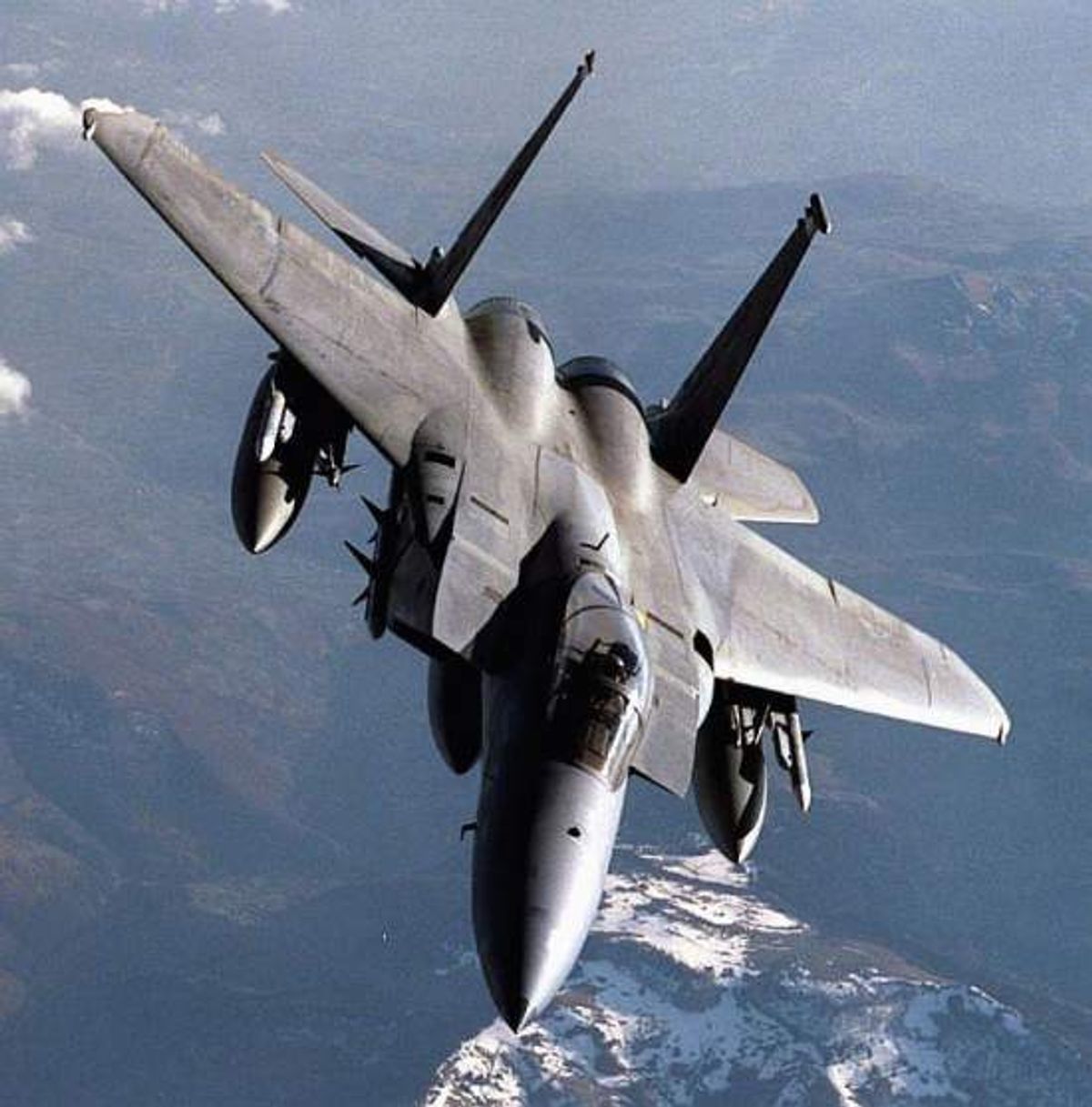The Financial Times reports today in a handful of related articles that the United States is getting set to sell some $123 billion in conventional arms--yes, that's $123 billion in conventional arms--to countries in the Middle East. The biggest single chunk, consisting of new and upgraded F-15 fighters, goes to Saudi Arabia, which also is buying a lot of equipment suited to counter-insurgency fighting. But Kuwait, the United Arab Emirates, Oman and Qatar also are major customers.
Notably, UAE and Kuwait are buying upgrades to the Patriot short-range missile defense system developed by Raytheon, and UAE intends to buy Lockheed Martin's high-altitude Thaad missile defense system. Boeing as builder of the F-15 will be the biggest corporate beneficiary of the sales, followed most likely by Raytheon.
Why are the Gulf states buying? Partly of course because they have a lot of money burning holes in their pockets: With high oil prices they have accumulated vast hordes of foreign currency. However, their main immediate motive appears to be fear of a hegemony-minded nuclear Iran and, closely related to that, fear that Israel might attack Iran--and that Iran might then retaliate against them, because of implicit or explicit cooperation with Israel.
I personally do not believe that Israel will attack Iran, or that the United States will do so in Israel's place. But according to the Financial Times's analysts, leaders in the Gulf states are not so confident.
Why is the United States selling? Partly because at a time when everybody is so concerned about job creation lagging recovery, it does't hurt to generate jobs at some of the most successful U.S companies. But the larger consideration, according to the highly regarded military analyst Anthony Cordesman, is that the U.S. government wants to create a "new post-Iraq security structure that can secure the flow of energy exports to the global economy," as he put it to an FT reporter.
He's got that right. The U.S. government (assuming its leaders are thinking clearly) are not so much concerned about American energy dependence as the dependence on oil of its big partners in the global economy, Europe and Japan. Contrary to widely held misperceptions the United States does not import all that much of its oil from the Middle East: only about 15 percent, according to the most recent figures I've seen, whereas over four fifths comes from the Americas and Africa. But Japan and some major countries in Europe are critically dependent on Middle Eastern oil--as they go, so goes the world economy.
The late Stephen Schneider, the eminent and influential Stanford climatologist, used to illustrate lectures about oil with photos of the U.S. aircraft carriers required to guarantee its safe delivery. His point was that when the total cost of oil is tallied, the cost of the aircraft carriers really should be included. That point is worth recalling, with all the talk we're hearing these days of systematically removing fossil fuel subsidies, worldwide. (If we can't agree on mandatory cuts in carbon emissions, the thinking goes, we ought to at least agree on no longer subsidizing oil and coal.)
Having paid the Gulf states vast sums of money for oil, the advanced industrial states help defray the costs of the militaries they maintain partly to secure the delivery of that oil by selling huge quantities of arms back to the Gulf States. That in itself seems more than a little questionable. But there are of course other implications. Calculations behind the current deals obviously include a bet that Israel need not be threatened because the Gulf states are being sold weapons that were designed and built in the 1970s, while Israel is getting a lot of the best brand-new stuff. But if current trends continue, could sheer quantity become a consideration? Is there a point where Saudi Arabia's fleet of F-15s gets so big, for example, it could be a threat to any regional neighbor?



